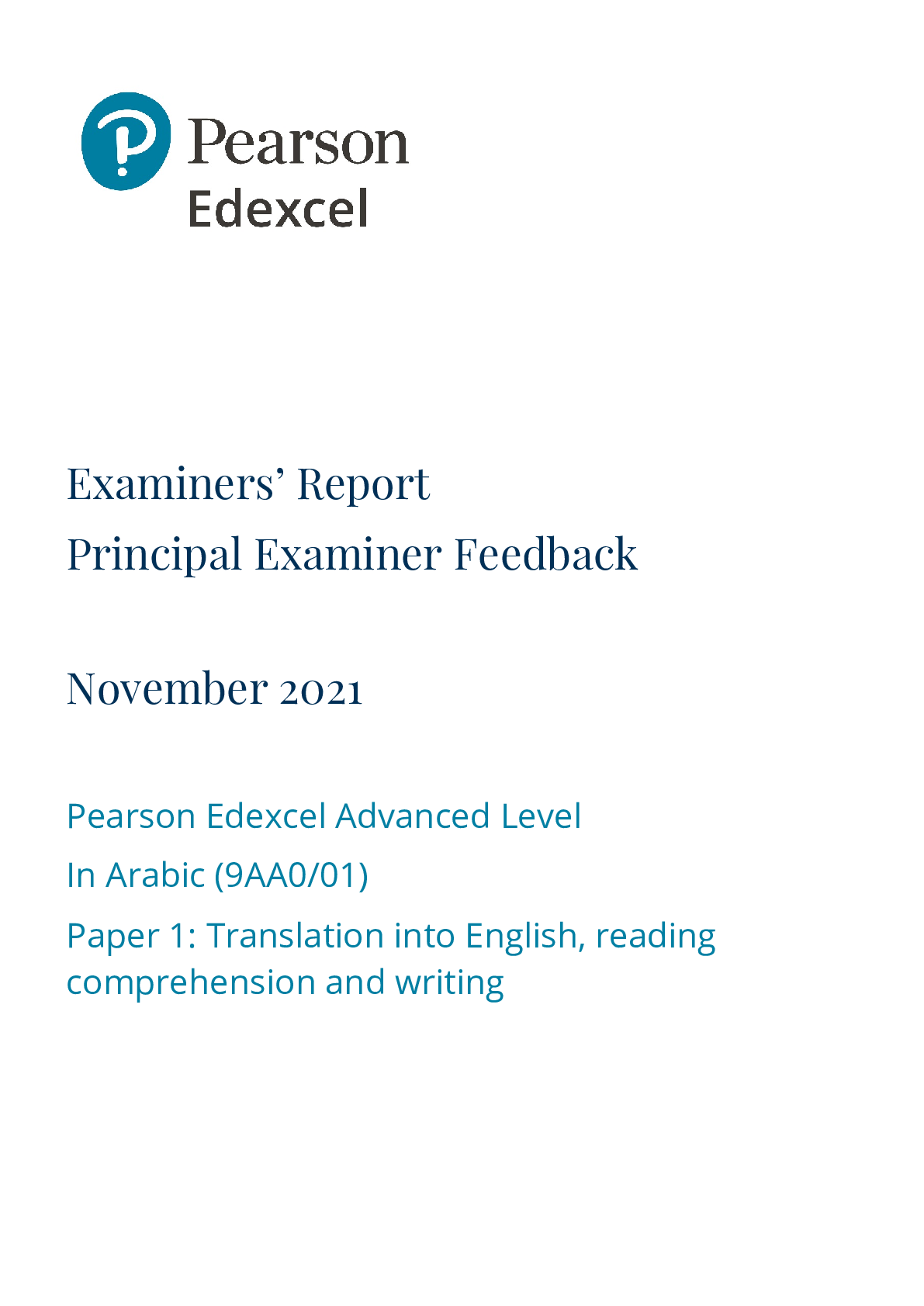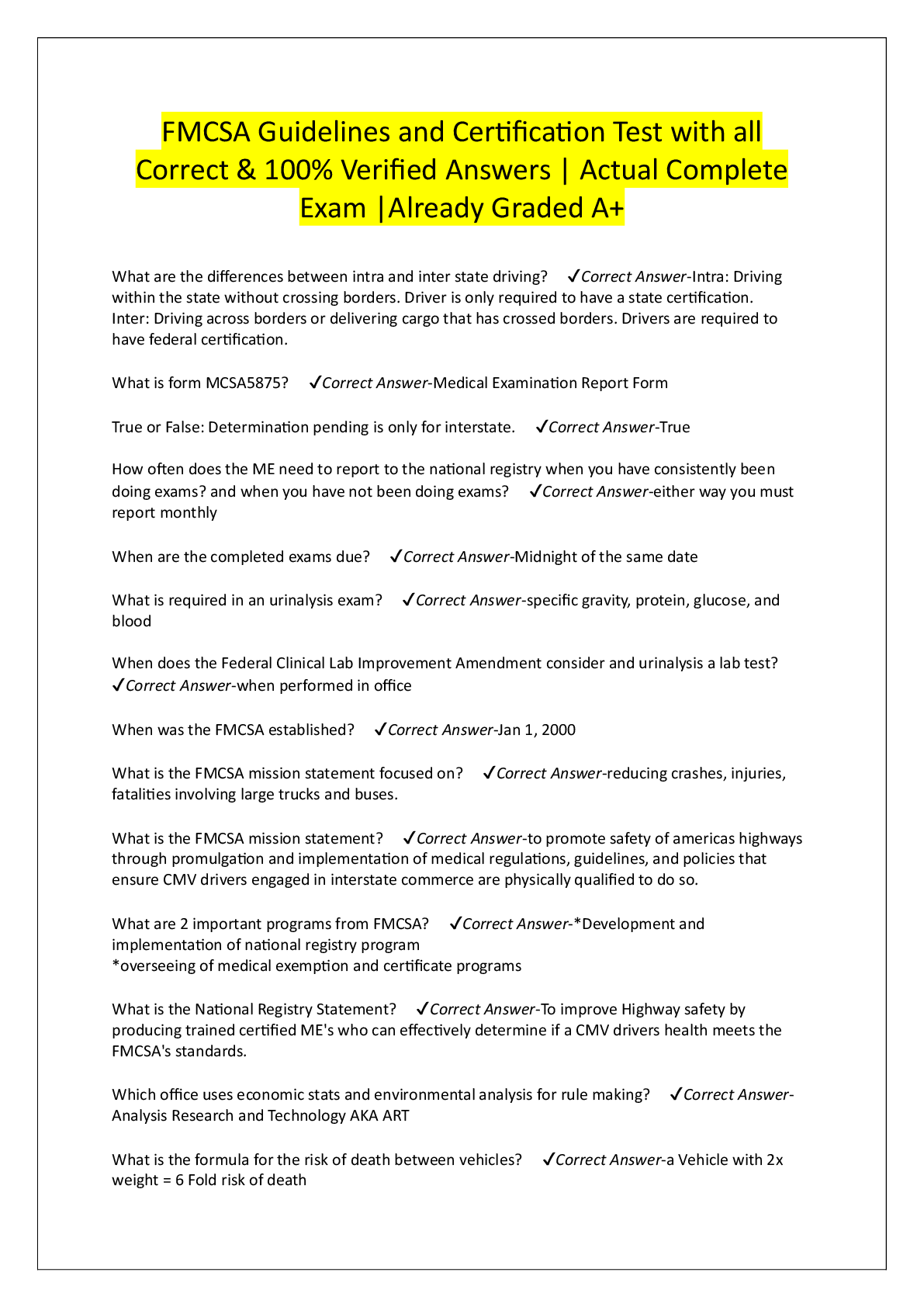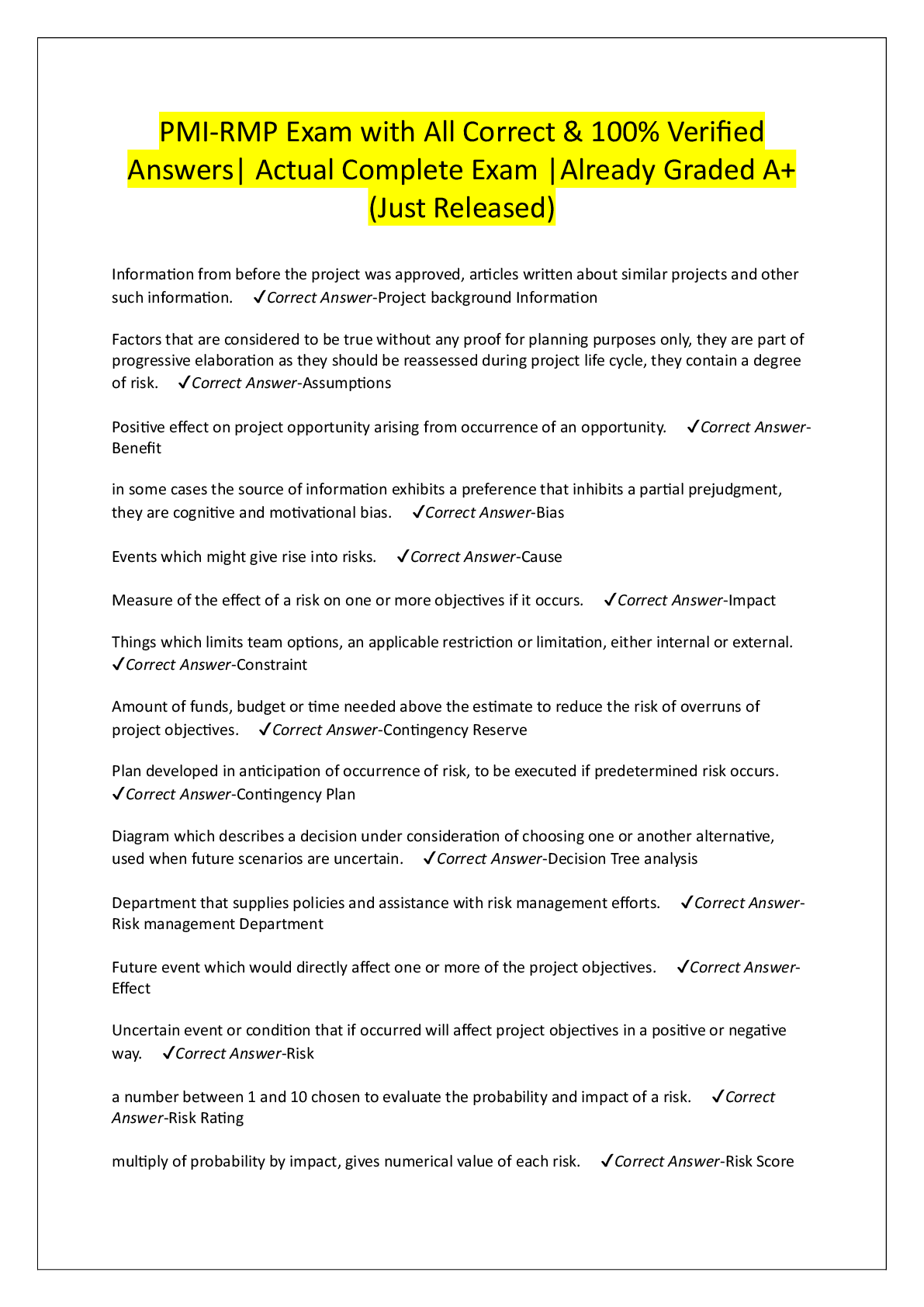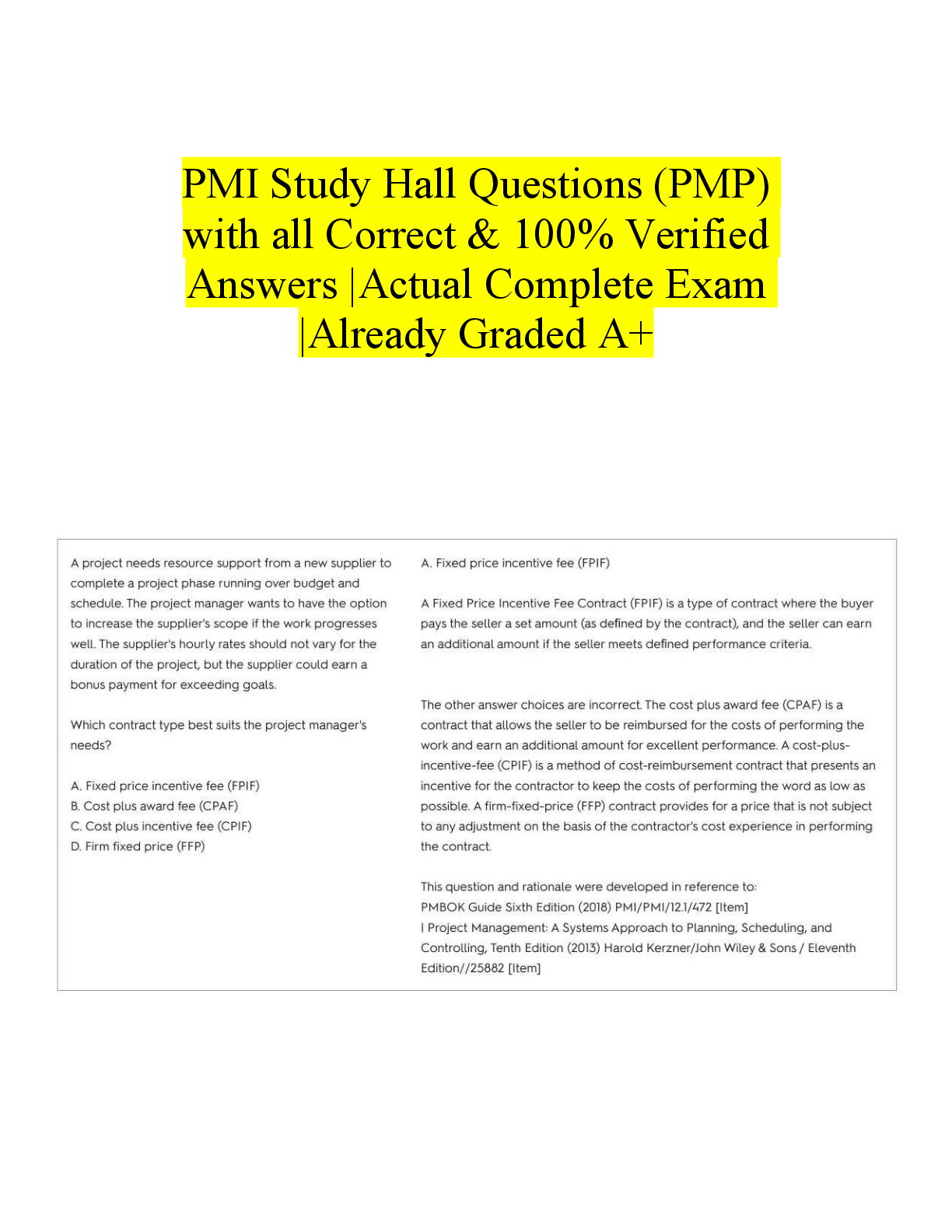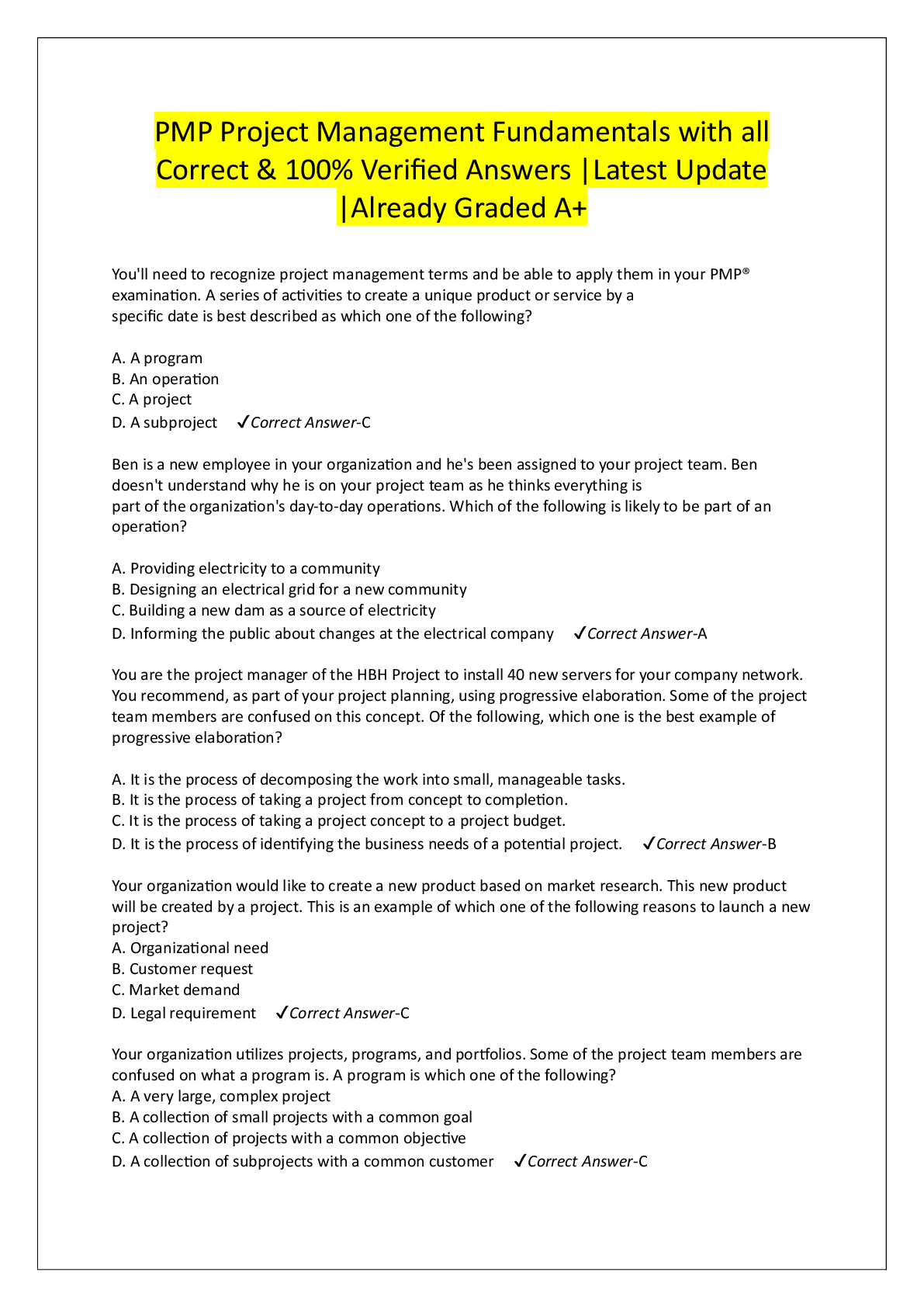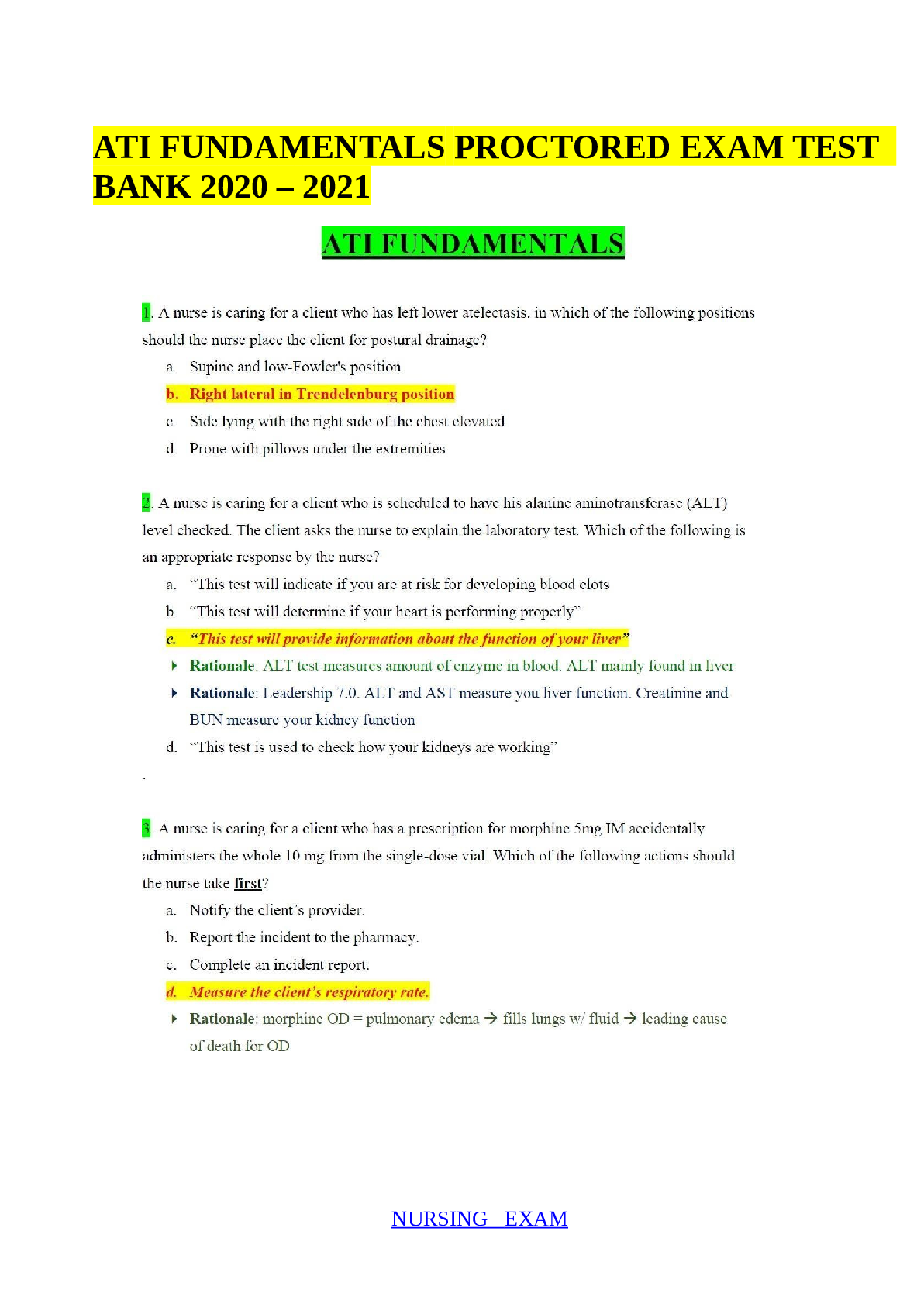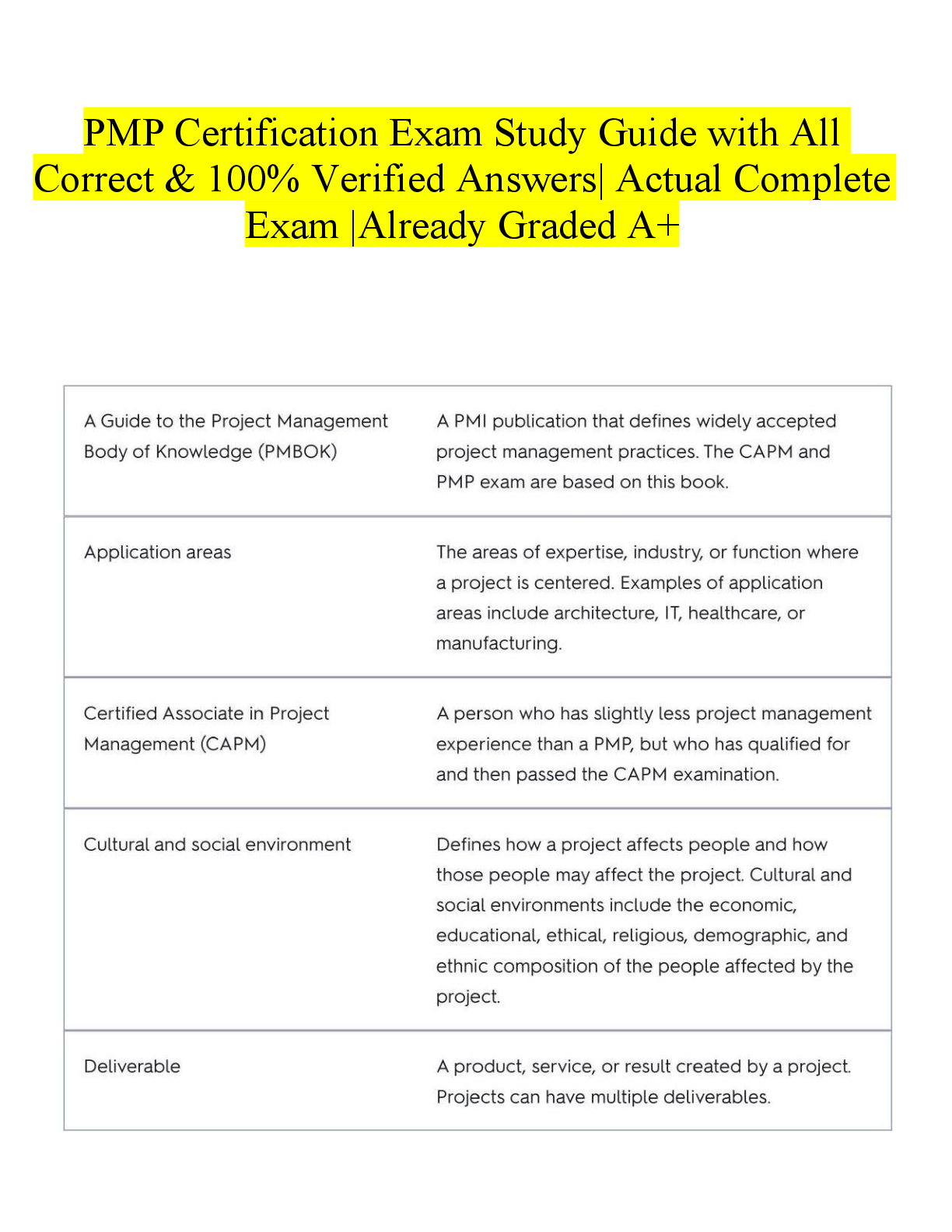NURS 6640 Week 6 Midterm Exam (Questions and Answers)
Document Content and Description Below
NURS 6640 Week 6 Midterm Exam (Questions and Answers) Question 1 1 out of 1 points An elderly patient in a nursing home has been losing interest in activities and now refuses to leave his ro ... om. After a physical exam, he is referred to a PMHNP for an initial assessment. True or false: After speaking with the patient, an appropriate screening tool for the PMHNP to use would be the Geriatric Depression Scale. Selected Answer: True Question 2 1 out of 1 points The PMHNP is working with a school-aged child who has been diagnosed with depression. The child has attended several sessions with the PMNHP, but recently presents with avoidant behavior by showing increased distress and being late to sessions. What approach does the PMHNP need to employ with the child to continue making therapeutic progress? Selected Answer: B. Using communication techniques that are expressive Question 3 0 out of 1 points During a session, the PMHNP asks a patient with a history of sexual abuse to recall the relationship she had as a child with her parents. The patient responds by saying she has a headache and her stomach hurts, and starts talking about her physical ailments. What is the appropriate response by the PMHNP? Selected Answer: B. Explain why it is important for the patient to discuss these memories openly Question 4 1 out of 1 points A PMHNP is taking a history and wants to assess how the patient copes with adversity. To do so, the therapist asks questions about the patient’s belief system. What would be an appropriate question to ask? Selected Answer: D. All of the above. Question 5 1 out of 1 points A 62-year-old patient has been diagnosed with borderline personality disorder. Upon assessment, the PMHNP learns that he participates in spending sprees and occasional binge eating, accompanied by rapid changes in self-image. Which evidence-based psychotherapeutic model does the PMHNP identify as effective and beneficial? Selected Answer: C. Dialectical behavior therapy Question 6 1 out of 1 points The PMHNP is working with a patient who seems dissatisfied with the therapeutic relationship. The PMHNP invites the patient to discuss her feelings regarding the PMHNP openly and honestly. It becomes clear to the PMHNP that they are experiencing an alliance rupture. How does the PMHNP repair the therapeutic alliance? Selected Answer: D. All of the above Question 7 1 out of 1 points The PMHNP is working with a patient who experiences anxiety around her parents that later leads to poor impulse control. What will the PMHNP do to employ psychodynamic psychotherapy properly for this patient? Selected Answer: D. All of the above Question 8 1 out of 1 points During a therapy session the patient is asked how she currently deals with stress, and she says, “Well, I don’t. I just let it build and build.” The PMHNP responds by asking how well this has been working out for her. The patient states, “Well, to be honest, it just feels like I’m drowning, you know what I mean.” Illustrating idiosyncratic meaning, the PMHNP responds with: Selected Answer: B. “No, I am not sure what you are saying. Can you please explain?” Question 9 1 out of 1 points The PMHNP is meeting with a 38-year-old divorced, single mother who has been seeing the PMHNP for anxiety and anger management. During one of the sessions, the patient tells the PMHNP that she is having a problem getting her child support payments from her ex-husband, which is triggering increased anxiety and anger, which she admittedly takes out on her children. How does the PMHNP respond in a way that upholds the supportive psychodynamic psychotherapy approach? Selected Answer: B. Suggesting that she seek legal help Question 10 1 out of 1 points The PMHNP is working with a patient who has dissociative disorder and requests pharmacological interventions for dealing with her trauma. What education does the PMHNP provide to the patient regarding medication therapy? Selected Answer: C. “The medication may provide symptom relief, but you still need psychotherapy.” Question 11 1 out of 1 points The PMHNP is assessing a patient who grew up in a foster home because she was neglected and abused by her birth parents at a young age. The patient admits to having difficulty forming and maintaining relationships throughout her life. Understanding maladaptive schemas, which statement does the PMHNP predict that the patient is likely to make? Selected Answer: C. “It takes me a while to warm up to people; people often wear masks.” Question 12 1 out of 1 points When the patient comes into the office, she says, “I just saw a friend of mine out in the waiting room. What’s wrong with him?” The PMHNP says, “He’ll be fine. He has mild depression.” Which of the following statement is correct related to confidentiality rights? Selected Answer: A. The PMHNP was not protecting patient confidentially rights. Question 13 1 out of 1 points After informing a prospective patient about limits of confidentiality, the patient consents to the “conditions” of confidentiality and signs an informed consent form. Several weeks later, a lawyer representing the patient’s spouse for a court case, asks the PMHNP for the disclosure of information about the patient. The PMHNP should: Selected Answer: C. Limit disclosure to the extent legally possible Question 14 1 out of 1 points The PMHNP is caring for a patient with borderline personality disorder. Using a psychoanalytic psychotherapy approach, the PMHNP attempts to intensify the patient’s transference to enhance emotional processing by: Selected Answer: D. Increasing the number of sessions per week Question 15 1 out of 1 points The PMHNP is caring for a patient with dissociated self-state that the PMHNP identifies as being associated with traumatic experiences in the patient’s past. What approach does the PMHNP use with the patient that is crucial to the psychodynamic therapy process? Selected Answer: A. Assisting the patient to experience and accept the various dimensions of the self through enhanced awareness of the traumatic states ................CONTINUED [Show More]
Last updated: 3 years ago
Preview 1 out of 23 pages

Buy this document to get the full access instantly
Instant Download Access after purchase
Buy NowInstant download
We Accept:

Also available in bundle (1)
Click Below to Access Bundle(s)
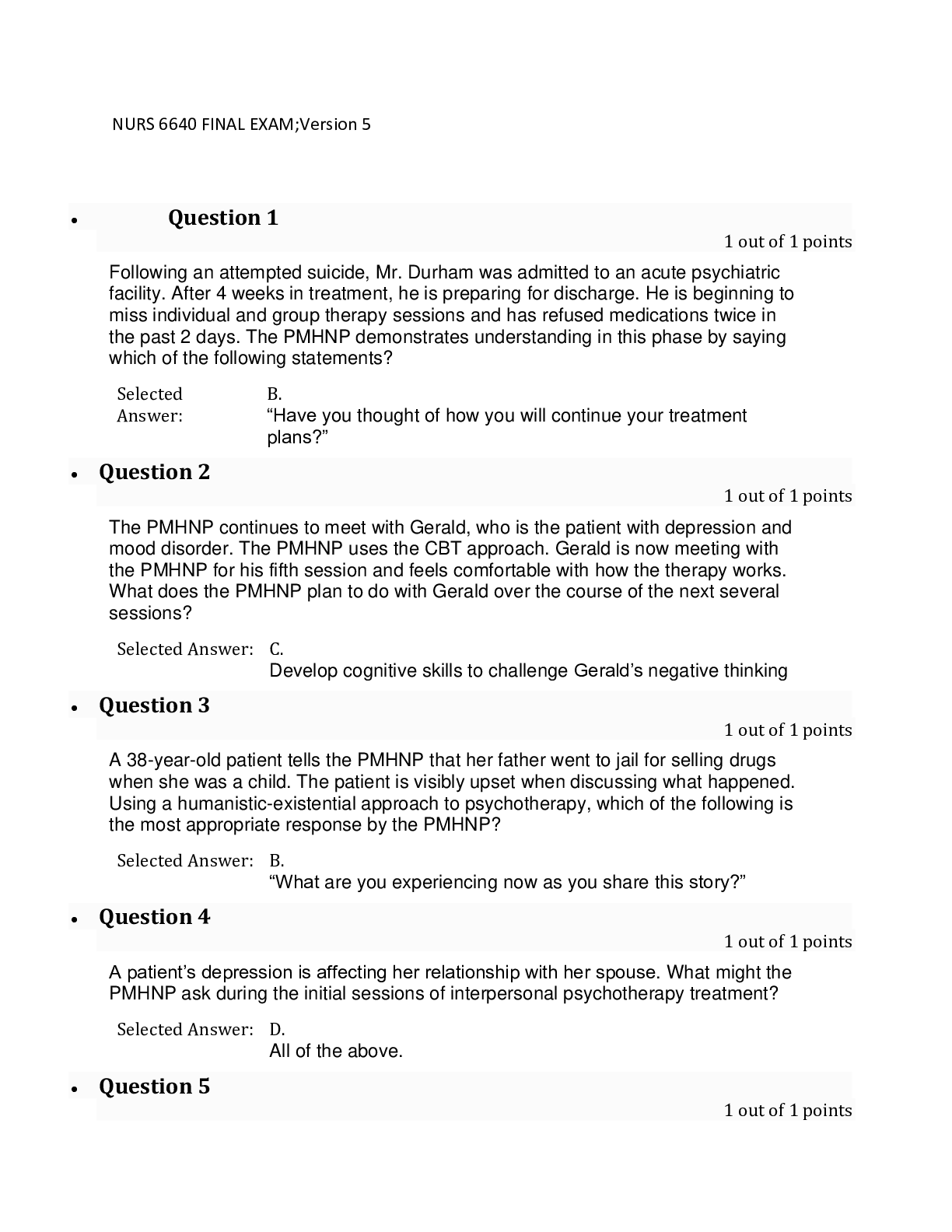
NURS 6640 Midterm and Final Exams (Questions and Answers)
NURS 6640 Midterm and Final Exams (Questions and Answers)
By YourTutor 4 years ago
$60.5
7
Reviews( 0 )
$20.50
Can't find what you want? Try our AI powered Search
Document information
Connected school, study & course
About the document
Uploaded On
Feb 01, 2021
Number of pages
23
Written in
All
Additional information
This document has been written for:
Uploaded
Feb 01, 2021
Downloads
0
Views
120












